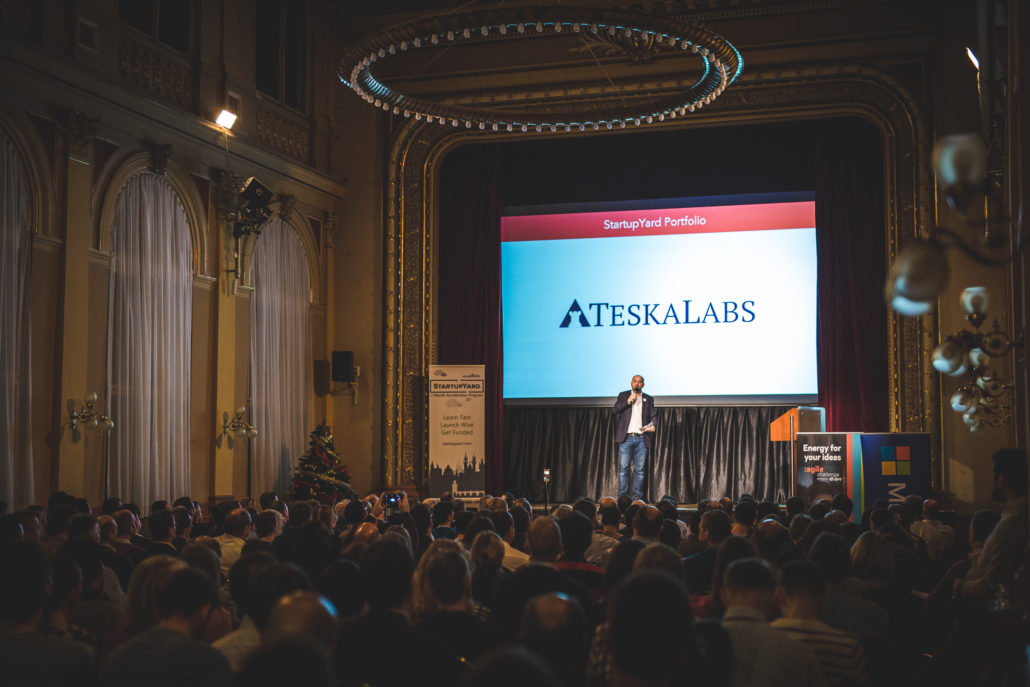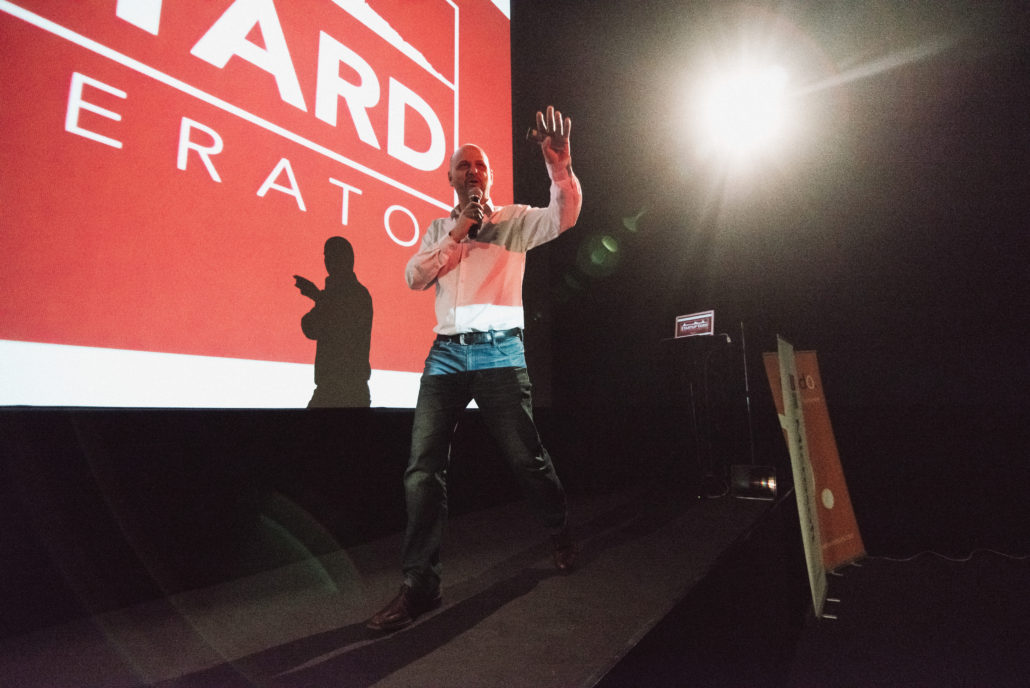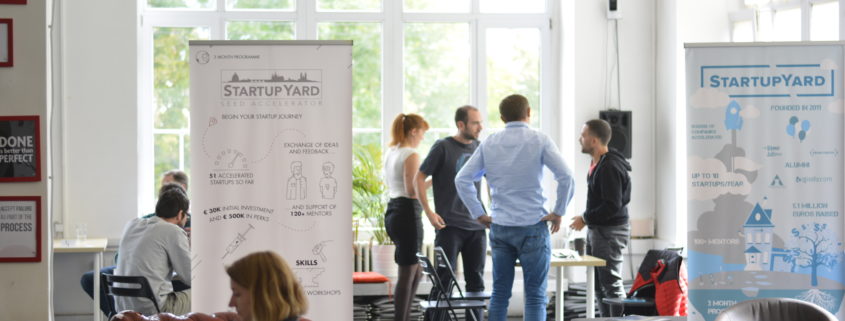6 Ways StartupYard Helps its Alumni Post Acceleration
One impression some startup founders have about accelerator programs is that they are a “one-off” activity that lasts for just 3 months, at which point a company moves forward to either grow and scale or falter and die.
Thus the constant objection some founders have to attending an accelerator: “It’s going to take too much of my time.” And yet the purpose of a good accelerator is to be a platform for growth, and a means to save time and deliver faster than you could otherwise.
An accelerator’s value has to live largely outside the time-frame In fact, over 7 years of operation, StartupYard has continued to grow its role in the post-acceleration success of our invested companies.
While we’ve always tried our best to take care of companies that have been through our program, these years of experience have continually shown us that our involvement is often as critical after the program as during it. That has led us to greatly expand our post-acceleration activities with alumni.
Here are some of the things a good program should be able to help alumni with:
Fundraising and Prep
An important part of growing a sustainable business is laying the proper groundwork with co-founders, employees, and investors from the beginning. This is an area where young companies fail needlessly. Flexibility and a “move fast and break things” attitude are great until they become roadblocks to growth. When you’re at the stage that you need capital to execute sales and development faster, you’ll need what any serious company does: a plan.

Yet few early-stage companies have access to the experience and resources they need to set up their ownership structure properly, much less to continue to manage that structure in a way that serves existing shareholders, and prepares the company for future investment. Then there is the need to develop a full set of contingency plans based on different levels of investment, with optimistic and pessimistic assumptions considered and accounted for.
Unlike a typical Seed fund or VC, StartupYard works with founders from the pre-incorporation phase if necessary, and can guide the creation of a growth plan that makes sense, and can make the company investible in the future.
Many of the blockers to necessary investment for growing companies are avoidable. They’re things that can be overcome early, or they can become a drag on your success. Few companies make it from incorporation to venture funding without a few nasty surprises along the way. These can be greatly limited by an early-stage partner whose job it is to make sure you’re laying the right foundation.
The Alumni Network
Often forgotten, but very important in our experience, is the role of our alumni network in helping new StartupYard companies gain a foothold. Like the mentor network, our alumni group is composed of people who have experienced every challenge young companies face. Not only that, the alumni have been in the founders’ shoes in the very recent past.
Because our alumni maintain such a close relationship with our team, they can be continually called upon to share their working knowledge of their industries, and make connections for new startups that even our mentors can’t. After all, who knows better how to approach customers with a brand new idea than someone who has just done it themselves?

StartupYard Alumni
To a surprising degree, our alumni have also come to constitute a base of early customers and partners for our newer startups. As our network grows to inhabit more industries, the chances that a fresh startup can begin cooperating with an alumni company grows every year. In our last two batches, multiple new startups have signed alumni companies as their first customers. The process also works in reverse: our newer companies have also become customers of our alumni.
The Negotiating Table
One of the biggest hidden advantages of being a StartupYard alum is the leverage it can bring to negotiations with new partners or investors. Of course, name recognition and the social proof a founder gets from attending our program are important, but they extend beyond just getting that first meeting with an investor.

Because the accelerator is a stakeholder, we are able to weigh in on the side of our startups to ensure that they are treated well and fairly by their later investors. Tech investors know, or quickly learn, that their access to deal flow depends on the reputation they’ve earned with us and other programs. Investors who are founder-friendly and straight-shooting are invited back, while those who don’t play fair will find that startups avoid them.
Here our mentor network also improves the position of our startups in negotiations. Being able to receive feedback from other alumni and mentors from the same industry helps founders to approach business deals better armed with the knowledge and context they need to make the best deals. Often too, our management team and mentors are involved in deals as advisors, bringing increased confidence and experience to the negotiating table.
Hiring
Of all challenges an early to mid-stage tech startup will face, hiring is perhaps the hardest. This is a problem that gets harder as companies grow, rather than easier. Finding and retaining talent is the number one barrier to growth for such companies.
Though StartupYard isn’t a talent agency by any stretch, again, planning is the best defense against this inevitable problem. That’s why we focus from the beginning on helping our startups to make the right early hiring decisions, so that their growth down the line won’t be disrupted unnecessarily by having to make drastic changes to the team in mid-stride.

This planning process includes not only understanding what kind of talent a young startup can afford, but also what types of people founders should hire first. Does a company need a COO or an outside CEO? Does it need a business development specialist, or should it hire a crack product development leader first? These questions are vital to the early success of young companies, and they’re very easy to get wrong.
Business Development
Business development with our startups is never confined to the brief 3-month window of acceleration. In fact, that’s more like an introductory period. Our startups continually tap our mentor network and corporate partnerships for business development for months and years after leaving the program.
We frequently connect alumni with new members of the network, as well as fielding requests from mentors and partners to connect them with our startups. As our network continues to grow, it becomes a richer resource for alumni and mentors both, often keeping connections going for years after the program. StartupYard’s in-person events and ongoing activities keep an open door between alumni and the broader network, so that early-stage companies that have grown in maturity and abilities can come back to mentors and partners when they’re ready, and mentors can keep up to date on what the companies are doing.
Press
Finally being part of StartupYard also means being part of our press operation. Though we aren’t the darling of the international media that Y-combinator is, our name recognition in Central Europe is high in the tech media, and we can leverage that name and our existing relationships with media outlets to highlight the activities and successes of our alumni.

In media, “relevance” is an important factor in getting any story told. Journalists look for familiar names and common connections to determine whether a startup or a particular story is noteworthy to its audience. Having the name of a well-known investor behind you helps to create that context for journalists and their readers, and makes it much more likely that you will receive coverage.




